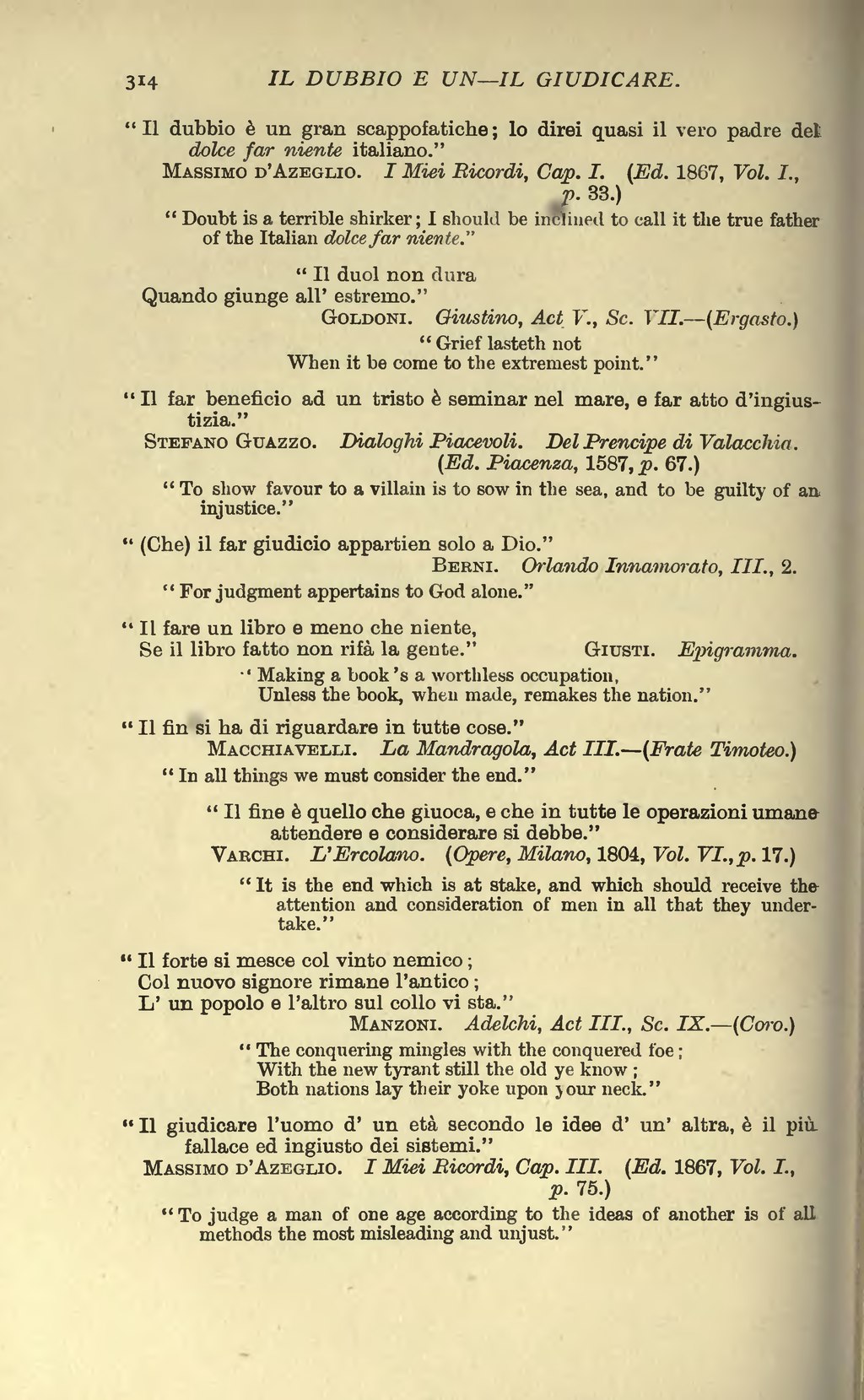“Il dubbio e un gran scappofatiche; lo direi quasi il vero padre del dolce far niente italiano.”
" Doubt is a terrible shirker; I should be inclined to call it the true father of the Italian dolce far niente.”
“Il duol non dura
Quando giunge all’ estremo.”
“Grief lasteth not
When it be come to the extremest point.”
“Il far beneficio ad un tristo è seminar nel mare, è far atto d’ingiustizia.”
“To show favour to a villain is to sow in the sea, and to be guilty of an injustice.”
“(Che) il far giudicio appartien solo a Die.”
“For judgment appertains to God alone.”
“Il fare un libro e meno che niente,
Se il libro fatto non rifa la gente.”
“Making a book’s a worthless occupation,
Unless the book, when made, remakes the nation.”
“Il fin si ha di riguardare in tutte cose.”
“In all things we must consider the end.”
“Il fine e quelle che giuoca, e che in tutte le operazioni umane
attendere e considerare si debbe.”
“It is the end which is at stake, and which should receive the-
attention and consideration of men in all that they under-
take.”
“Il forte si mesce col vinto nemico;
Col nuGVO signore rimane l’antico;
L’ un popolo e l’altro sul colic vi sta.”
“The conquering mingles with the conquered foe;
With the new tyrant still the old ye know;
Both nations lay their yoke upon jour neck.”
“Il giudicare ruomo d’ un eta secondo le idee d’ un’ altra, e il più
fallace ed ingiusto dei sistemi.”
“To judge a man of one age according to the ideas of another is of all
methods the most misleading and unjust.”
!

